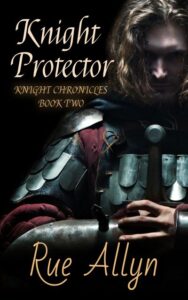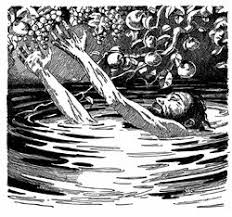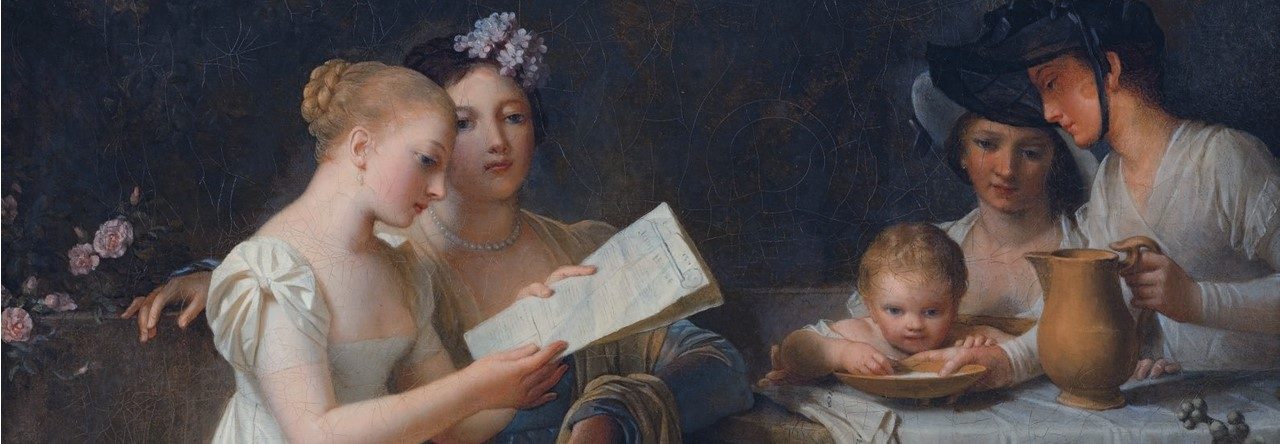 In the mid-13th century the Bishop of Durnoch was involved in a land dispute with Baron MacFearann. After exchanging several messages and suffering the disappearance of at least one messenger, the Bishop decided to attempt to resolve the problem in person. He gave notice to the baron that he and his entourage would arrive in time for the Shrove Tuesday feast.
In the mid-13th century the Bishop of Durnoch was involved in a land dispute with Baron MacFearann. After exchanging several messages and suffering the disappearance of at least one messenger, the Bishop decided to attempt to resolve the problem in person. He gave notice to the baron that he and his entourage would arrive in time for the Shrove Tuesday feast.
On arrival, the bishop’s escort was welcomed and housed in the MacFearann barracks. The bishop and two of his most essential attendants were greeted with great courtesy and shown to lavish rooms in the MacFearann keep. It was only after a long and in the bishop’s opinion very delicious dinner that he was able to speak privately and at length with the baron.
The bishop did everything he knew how to do to persuade MacFearann to tithe the lands as ordered. But even the threat of ex-communication fell on deaf ears. The last thing the bishop did was to ask if MacFearann had encountered the friar sent more than a month earlier?
“Oh, aye, that I have,” assured the baron.
“Then do you know what became of him,” queried the bishop.
“Aye, I do, and so do yer excellency.”
“Then might you tell me where he is?”
“But ye know that already, excellency.”
The bishop was of course puzzled. “Would I ask you if I knew?”
“Mayhap ye’re a bit confused. Yer friar was present at dinner.”
“I did not see him.” The bishop shook his head.
“Och but ye did. He was setting on the table right before ye.”
The bishop’s eyes went wide and his mouth dropped open. “But that was . . .” he swallowed, clearly discomfited. “That was a roast.”
“Aye.” The baron nodded. “Ye told me from yer own lips how much you enjoyed the roast and the spiced gravy served with it.”
The bishop’s face turned green. “The spiced gravy?”
“Yer friar contributed to every part of the meal, in one way or another.”
 The bishop tried to speak but his stomach overcame him and he cast up his accounts into the rushes. “What vile trick is this?” he asked when he could finally speak.
The bishop tried to speak but his stomach overcame him and he cast up his accounts into the rushes. “What vile trick is this?” he asked when he could finally speak.
“Why ’tis no trick.” The baron stood and walked to where the bishop sat. “Ye wished to tithe the life blood from Clan MacFearann. I couldna let that happen. So when ye announce ye would visit–note that I dinna invite ye–I decided to take some of the church’s blood, but feeling guilty I then decided to give it back. Yer friar will be a part of ye always.”
*With that MacFearann stabbed the bishop doing severe damage that would lead to a slow death. Above stairs his two most trusted men were enacting the same punishment on the attendants, whose only crimes were to serve the bishop.
The dead bodies were put on display at the border of MacFearann lands and the story was told far and wide by every MacFearan to any and all who would listen. They wanted to be certain that everyone knew what might happen if an attempt was made to take from MacFearann what belonged to MacFearann.
The result was that the Scottish people have long feared and hated the entire clan for daring to so desecrate God’s bishop and his men. This evil has lived so long in the memories of the local folk, that even today the baron’s ancestors are reviled and despised.
Dear Readers,
We beg your pardon for publishing this lurid history, but assure you as gruesome as the tale may be the events are securely in the past. No such actions would be possible in this modern day and age–at least we most sincerely hope so.
As you know our intrepid reporter in Scotland has been researching the histories of various clans connected with the Duke of Cowal and the approaching marriage of his heir. Among these clans the most prominent are the MacTavish, MacKai and Marr. Each of these clans is dominant in regions blanketing Scotland’s Western coast and territories. However, our reporter discovered an obscure and ancient connection between Clan Marr, famous for its Strathnaver Whisky, and a small, currently quite poor clan whose lands once stretched from Thurso to Dornoch. As the history above explains Clan MacFearann was once the most hated of all Scottish clans and the most feared.
The Tattler and its staff, most sincerely pity any family having even a distant connection to such a clan.
From the author, Rue Allyn: Members of the MacFearann clan appear frequently in my fictional version of Scotland. The MacFearanns had their strongest impact to date in Knight Protector – Knight Chronicles Book Two. Because of that story and a few others, at least one member of the clan will appear briefly in The Pirate Duchess – Duchess Series Book Two, one of my current works in progress. You may purchase Knight Protector from your favorite retailer https://books2read.com/u/bwjMAP. Or join my mailing list to receive my latest news and most recent deals. Here’s the link to my website homepage where you may find the subscription form at the bottom of the page.
*The black and white image on the right depicts Tantalus who was condemned after death to starve for all eternity for the grievous sin of serving his dead son as a meal to the gods.


1 Pingback